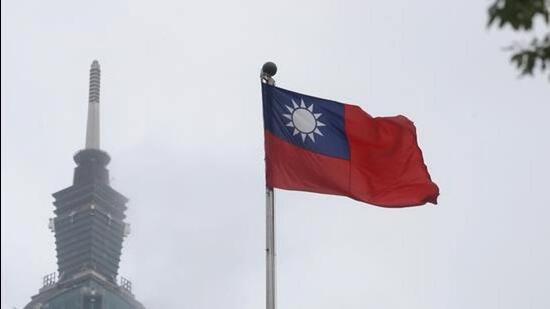Grand Strategy: What India should do in a Taiwan military contingency
A forcible reunification of Taiwan by China will have serious geopolitical implications for Asian balance of power and for India
Not long ago, a visiting American think tank delegation asked me if I thought whether India would help defend Taiwan’s sovereignty in the event of a Chinese attempt at the takeover of the Island by force. I responded by stating that, to begin with, Taiwan has no sovereignty to help defend. Functionally, Taiwan operates as more than just a province of China; however, its legal sovereignty is at best disputed and, at worst, non-existent.

This question of legal sovereignty, I argued, will weigh heavily on Delhi’s mind when it decides what to do in an eventually where China seeks to alter the current status quo through military means. I also argued that the US military commitment to defend Taiwan at any cost under the new Trump administration appears deeply questionable. Therefore, expecting countries like India to “help” the US defend Taiwan’s sovereignty—something it legally does not possess—seems unrealistic.
In an age where the American commitment to its closest allies in Europe is hardly above doubt, would Washington defend its allies in Asia such as Japan and South Korea? The question of Taiwan may rank even lower on the scale of American commitments.
But there is a larger question that Delhi might need to contemplate. If, hypothetically speaking, the American military commitment to defend Taiwan was truly rock-solid, would India do anything to defend Taiwan? Should it?
Not that what happens in Taiwan will have no implications for India. It would. A forcible reunification of Taiwan by China will have serious geopolitical implications for Asian balance of power and for India. The end of Taiwan’s autonomous existence and its coming under Beijing’s control will lead to China’s primacy in the Western Pacific, pushing Asia closer to becoming a unipolar region dominated by China.
But are those geopolitical implications sufficient for India to do anything to help Taiwan defend itself? I doubt it. More so, Delhi will have to consider what exactly it can do to help Taiwan to defend against Chinese military aggression. And at what cost.
Delhi is most unlikely to, and rightly so, offer any military help to Taiwan or its allies (assuming its allies and partners like the US will come to its aid) to meet the China challenge. What about the issue of helping American military efforts indirectly? Will India offer non-military help such as logistics or replenishment services to those, if any, involved in military efforts to defend Taiwan? India is likely to fulfil its commitments to the US or other countries with whom the country has logistics supply agreements with. Beyond that, Delhi is unlikely to make any efforts, I think.
How about helping Washington and its allies to put pressure on China in the Malacca strait? Unlikely. Will India help the US and its allies to impose sanctions on China? Unlikely, again, considering India has a long-standing policy of not being part of sanctions regimes which are not authorised by the UN. Will India condemn Chinese aggression? I don’t know. But it is likely to argue that status quo must be maintained.
“When your time comes”
This line of reasoning is often met with a counterquestion: “If you don’t help your friends in times of their national security emergencies, who will be by your side when you need help at the time of a potential Chinese aggression?”
Notwithstanding the rhetorical transnationalism of that question (there is no guarantee that the US will help India to defend against China if India helps US to defend Taiwan), this is an issue for us to reflect upon. What kind of help would India need? China is unlikely to carry out an all-out attack against India which, like China, is armed with nuclear weapons. The India-China confrontation is likely to remain limited to border skirmishes and cyber-attacks from the Chinese side.
To address these two forms of Chinese aggression, India must focus on building its own capabilities rather than seeking help after such attacks occur. Put differently, the kind of military challenges India is likely to face from China provides limited space for India’s friends to offer military help even if they decide to do so. Much of the help to India will be in the political and diplomatic space, not military.
What we really need from our friends and partners vis-à-vis China is to help create conditions in the region which dissuade Beijing from undertaking military adventurism against India. So, we would need more peacetime conversations, cooperation, military exercises, signaling, regional minilateralism, supply chain resilience etc. rather than reliance and hope on potential military help from abroad during a crisis with China. India’s best guarantee against potential Chinese aggression is in peacetime efforts aimed at defence preparedness and political signaling, rather than depending on its friends and partners during an actual military crisis. Let’s assume that India will be on its own should it ever face a military contingency with China, and plan accordingly.
But to go back to the Taiwan question, my sense if that India’s engagement of Taiwan is likely to take place below a certain threshold. That threshold is called status quo. And since the question of a sovereign Taiwan is way above that threshold, Delhi’s response is likely to be less than enthusiastic considering the Indian recognition that what Taiwan can get beyond the status quo is what it can negotiate with China, not what others can give it through the use of their force.
------------------
Happymon Jacob teaches India’s foreign policy at Jawaharlal Nehru University (JNU) and is editor, INDIA’S WORLD magazine. Views are personal.
All Access.
One Subscription.
Get 360° coverage—from daily headlines
to 100 year archives.



HT App & Website







